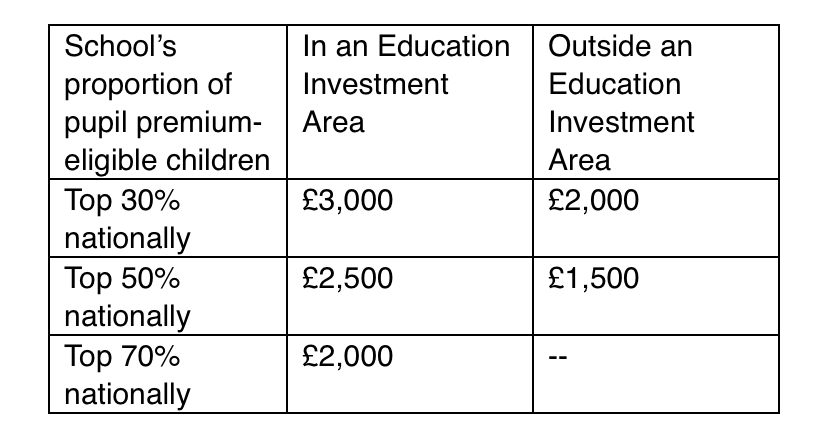Up to 7,000 early-career computing, maths, physics and chemistry teachers in 2,500 schools will receive bonuses to stay in the profession, amid fears of a growing exodus of staff.
The scheme is a reheated version of the “early career payments” bonus scheme the government scrapped in 2020.
But staff in some subjects and areas will no longer be eligible, while some staff at schools with lower-than-average poverty levels will be – despite it being dubbed the “levelling up premium”.
At its most generous, the predecessor scheme was worth £15,000 for maths teachers.
Now the government has dusted off a similar initiative, focused on its new “education investment areas” and open from September.
Education secretary Nadhim Zahawi said it would give staff “the best specialist teaching”.
But unlike the last scheme, languages staff are ineligible, and computing staff now are.
Only new teachers in schools with the highest proportion of students receiving free school meals can apply. Officials did not say how to find out where schools rank by this measure.

Eligible staff in the 30 per cent of schools with the poorest intake will receive £6,000 for staying five years in the profession – or £9,000 if schools are in 55 newly created EIAs. It will be distributed as three £3,000 annual bonuses during teachers’ first five years.
If they are in the top 50 per cent, they can take home £4,500, or £7,500 in ministers’ prioritised EIAs.
Teachers in more advantaged schools will benefit
Yet despite payments being dubbed the “levelling up premium,” some staff will receive bonuses in schools with lower-than-average intakes of poor pupils.
Schools only need to be in the top 70 per cent for some staff to be eligible if they are in EIAs, with £6,000 available. Staff at similar schools outside EIAs cannot claim anything.
The DfE expects staff at around 2,500 schools to benefit.
Zahawi said it would support jobs in low-income areas, adding: “Teachers shouldn’t feel that they must leave their local area for a better paid job.”
The DfE recently predicted a looming exodus of teachers delayed by Covid, and hiked trainee recruitment targets.
Meanwhile officials have also announced £498.3 million had been allocated in Condition Improvement Fund grants for building work and repairs next year.
The “most pressing” 1,405 bids submitted by small trusts, sixth-form colleges and some voluntary-aided schools received funding, out of 3,501 applications.
Acceptance rates varied by region, from 28 per cent in the south-west to 46 per cent in Lancashire and West Yorkshire.
Correction: DfE originally said 4,500 schools would benefit. It later said this was incorrect, and actually just 2,500 schools would benefit.
















Your thoughts